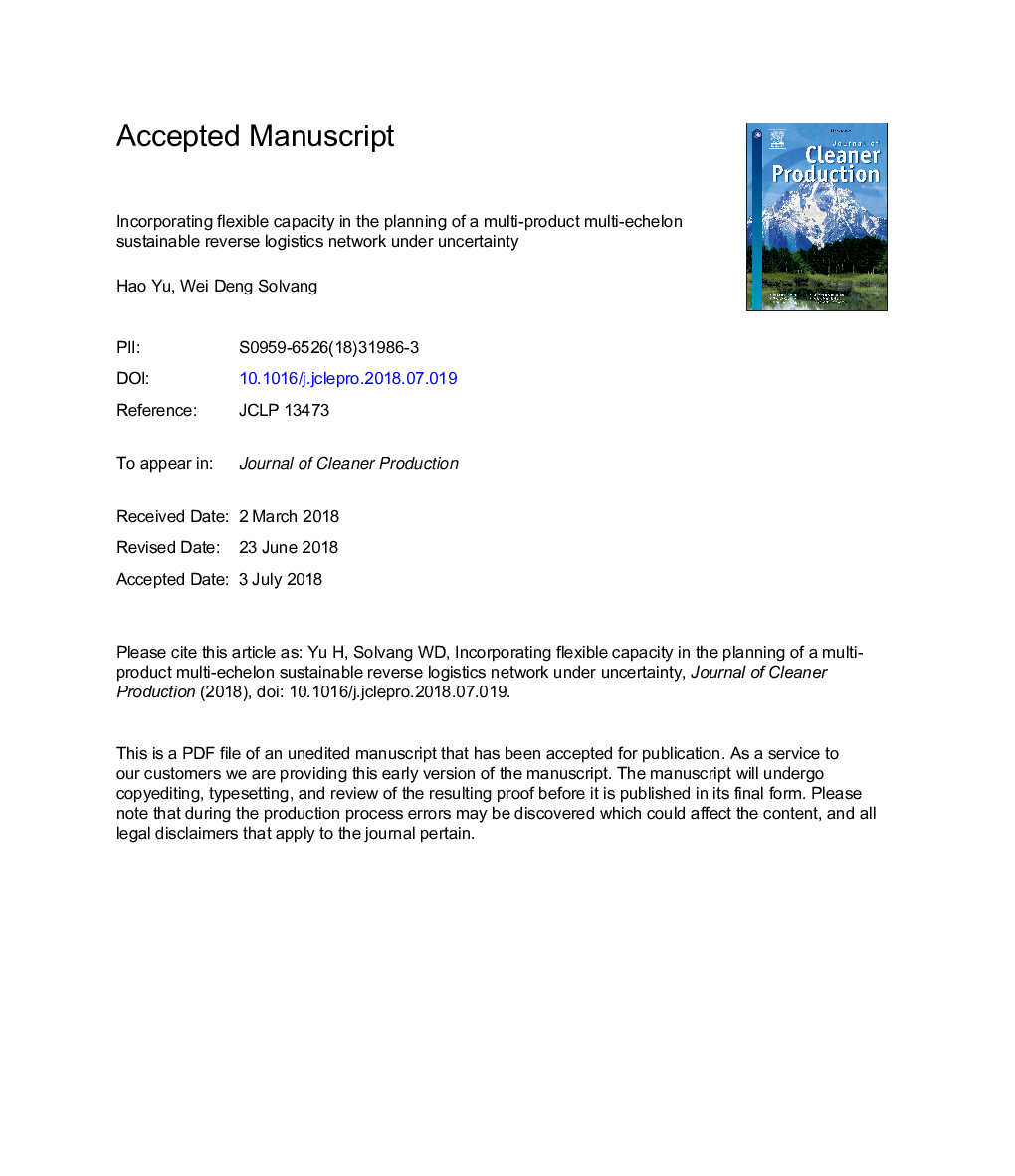| کد مقاله | کد نشریه | سال انتشار | مقاله انگلیسی | نسخه تمام متن |
|---|---|---|---|---|
| 8093458 | 1522054 | 2018 | 37 صفحه PDF | دانلود رایگان |
عنوان انگلیسی مقاله ISI
Incorporating flexible capacity in the planning of a multi-product multi-echelon sustainable reverse logistics network under uncertainty
ترجمه فارسی عنوان
شامل ظرفیت انعطاف پذیر در برنامه ریزی یک شبکه چند تکه ای پایدار و معقول منطقی تضمین شده در معرض عدم اطمینان
دانلود مقاله + سفارش ترجمه
دانلود مقاله ISI انگلیسی
رایگان برای ایرانیان
کلمات کلیدی
معکوس تدارکات، زنجیره تامین پایدار، مکان های تسهیلات انعطاف پذیری، پایداری،
موضوعات مرتبط
مهندسی و علوم پایه
مهندسی انرژی
انرژی های تجدید پذیر، توسعه پایدار و محیط زیست
چکیده انگلیسی
With the focus on sustainable development, the value recovery from End-of-Life (EOL) and End-of-Use (EOU) products has been given considerable attention by the whole society. Reverse logistics is the process for value recovery and re-creation through a series of activities, i.e., repair, remanufacturing, recycling and energy recovery. However, due to the stochastic reverse product flow, unstable quality of used products, and the price fluctuation of recycled and remanufactured products, the planning of a reverse logistics system is more complex compared with that of a forward supply chain. In this paper, we propose a two-stage stochastic bi-objective mixed integer programming model for the network design problem of a multi-product multi-echelon sustainable reverse logistics system under uncertainty, which aims at providing a set of Pareto solutions between profitability and environmental performance. Furthermore, due to the heterogeneous nature, the processing operations performed at remanufacturing and recycling centers for different products are by no means identical. Different from the previous modelling efforts derived from a genetic “capacitated location problem”, this paper considers the impact from the system flexibility on sustainable reverse logistics network design. Thus, the model is formulated in two parallel ways with either efficiency-focused non-flexible capacity or effectiveness-focused flexible capacity. The experimental analysis illustrates that increasing environmental requirement will decrease the profitability of the reverse logistics system, while, increasing flexibility may yield positive impacts on both economic and environmental performance when the efficiency loss is kept at a proper level.
ناشر
Database: Elsevier - ScienceDirect (ساینس دایرکت)
Journal: Journal of Cleaner Production - Volume 198, 10 October 2018, Pages 285-303
Journal: Journal of Cleaner Production - Volume 198, 10 October 2018, Pages 285-303
نویسندگان
Hao Yu, Wei Deng Solvang,
